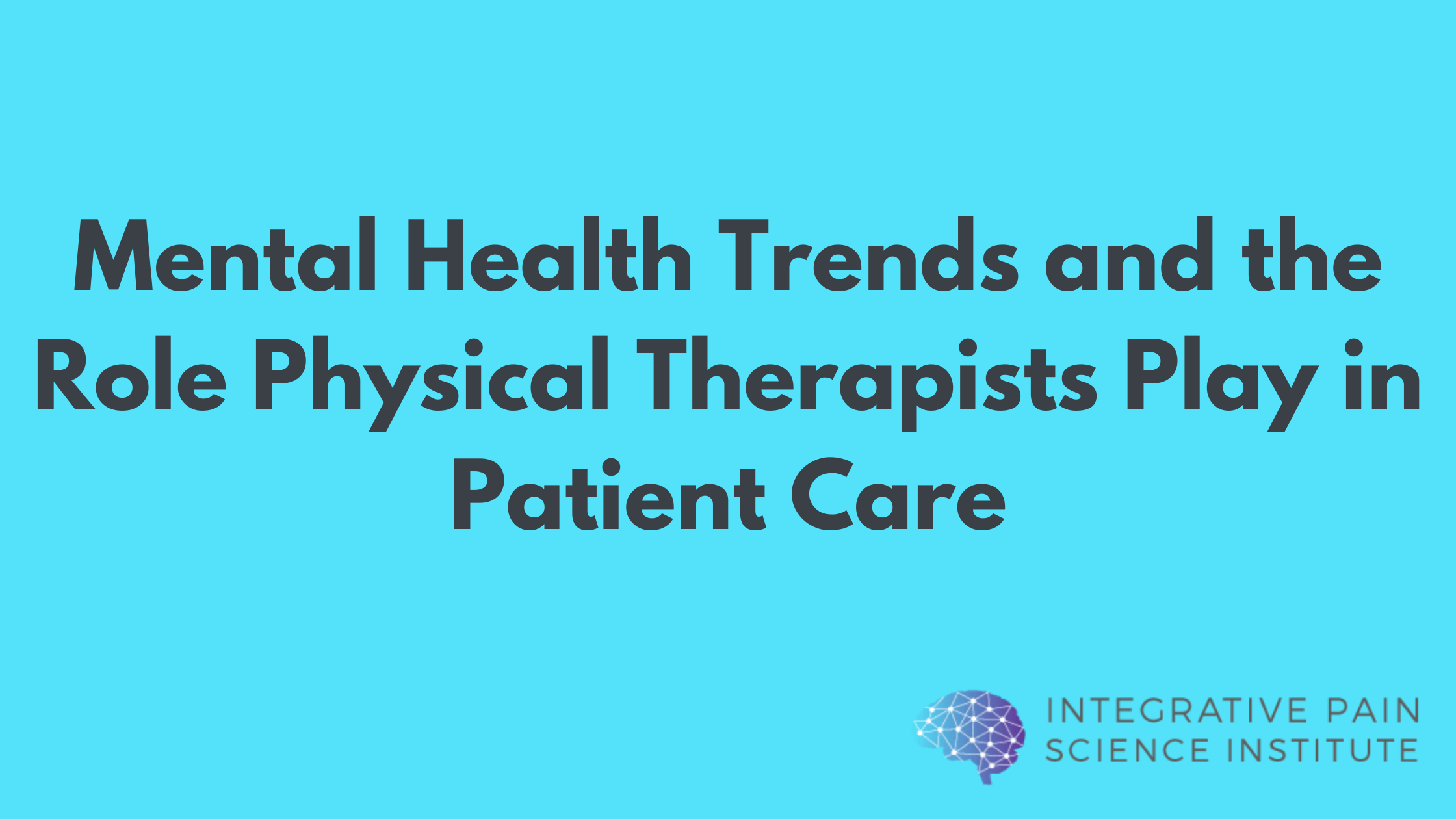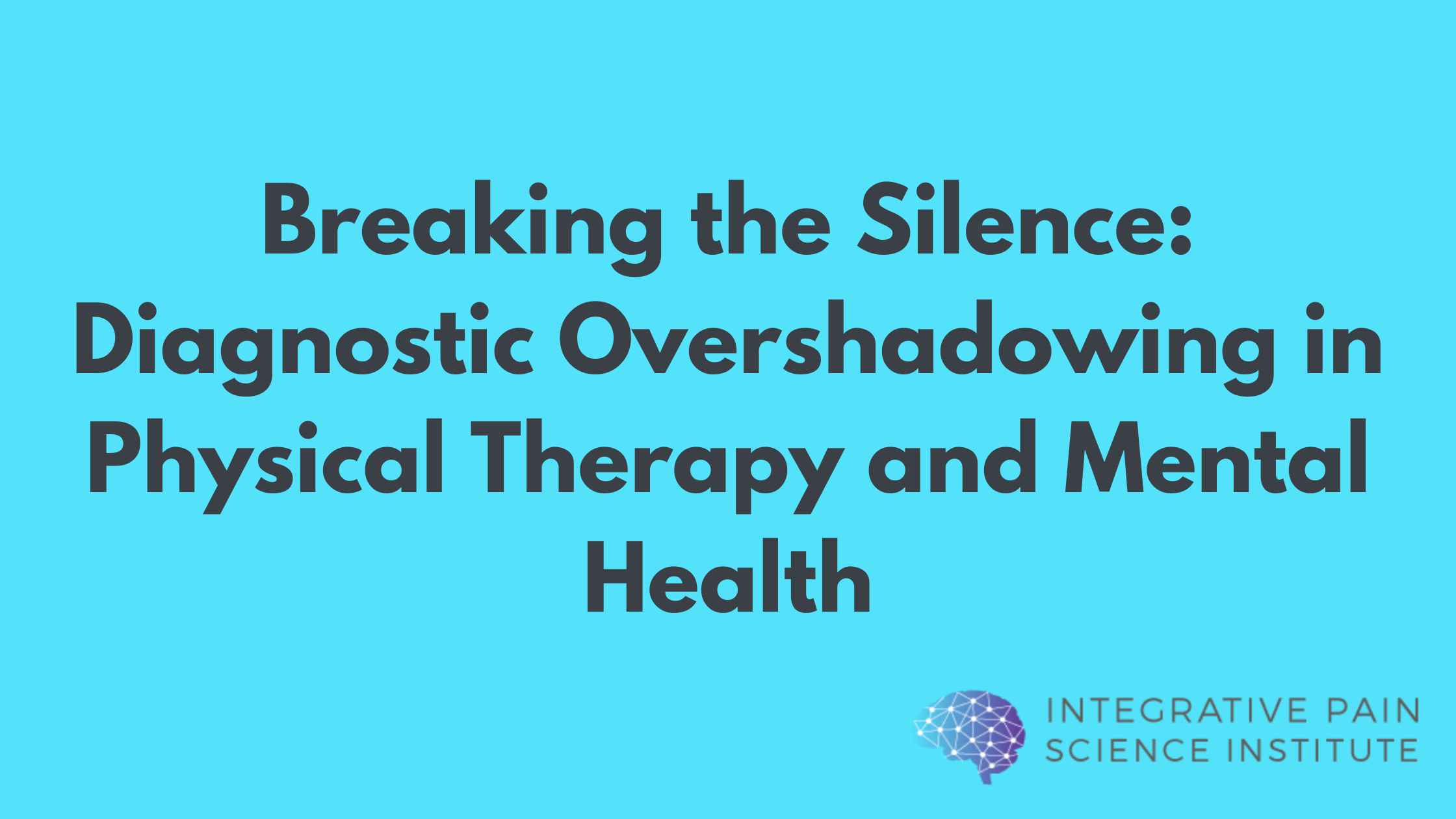As anyone who has ever driven a car knows, road signs and signals speak as much through color as they do with words. And while bolder colors like red and green leave little room for interpretation, a color like yellow cautions us to take a closer look at potential factors that may be cause for concern – either now or in the not-so-distant future.
A similar color system is applied within the world of psychologically informed care (a.k.a., psychologically informed practice), which makes use of the concept of “yellow flags” to identify psychological risk factors in patients suffering from chronic pain.

Psychologically Informed Care?
Psychologically informed practice is a concept of care that strives to connect both the biomechanical principles around which typical physical therapy practices treat patients, and the more cognitive-behavioral approaches developed for the treatment of mental illness.
Such a concept of care emerged as both researchers and practitioners began to better understand the role psychological factors play in chronic pain and the success (or failure) of traditional, biomechanical interventions.
The principles of psychologically informed care, in other words, were developed around the firm belief that psychological factors should be a key focus for pain practitioners intent on helping their patients lead fulfilling, meaningful lives while returning them to a more active lifestyle.
One of the main goals of psychologically informed care is having the ability to identify psychosocial signs (known as “yellow flags”) in a patient which may affect his or her treatment outcomes.
[Read: Exploring Physiotherapists’ Beliefs About Psychological Informed Care]
The Meaning of Yellow Flags
The term “yellow flag” was coined to describe “psychological risk factors and social and environmental risk factors for prolonged disability and failure to return to work as a consequence of musculoskeletal symptoms.”
Once identified, such yellow flags help physical therapists modify their treatments to improve outcomes – treatments that better align with these psychological factors.
What, then, constitutes a yellow flag?

According to a 2011 study titled “Early Identification and Management of Psychological Risk Factors (‘Yellow Flags’) in Patients with Low Back Pain: A Reappraisal,” yellow flags can be broken down into three categories:
- Beliefs, Appraisals & Judgements:These are defined as “unhelpful” beliefs about pain, such as that an injury (and the pain associated with it) cannot be controlled or is likely to worsen. It also includes the expectation of a poor treatment outcome.
- Emotional Responses: These yellow flags include worries, fears and anxiety – psychological distresses that do not meet the criteria as mental disorders.
- Pain Behavior/Coping Strategies: This is simply the avoidance of movement and activities because one anticipates pain or re-injury. It also includes the overreliance on passive treatments like hot/cold packs, medication, etc.
Dr. Tatta’s simple and effective pain assessment tools. Quickly and easily assess pain so you can develop actionable solutions in less time.
The PT-Patient Relationship
While psychological assessments may not fall within the comfort zones of most physical therapists today, PTs who treat chronic pain sufferers are no doubt uniquely positioned to identify and address these yellow flags.
Not only can they improve outcomes for their patients, but such a holistic approach to pain care can set a clinic apart within its market.
That’s why the Integrative Pain and Science Institute has responded to the need for psychologically informed care education by offering training that allows physical therapists to feel confident in assessing psychological factors when treating chronic pain.

By learning to identify potential yellow flags in a patient, then altering their treatments accordingly, physical therapists and their patients will begin to see improved, more long-lasting outcomes that truly make a park of people’s lives.
Offering such well-rounded care and treatment can, of course, also set your clinic apart within your local market.



